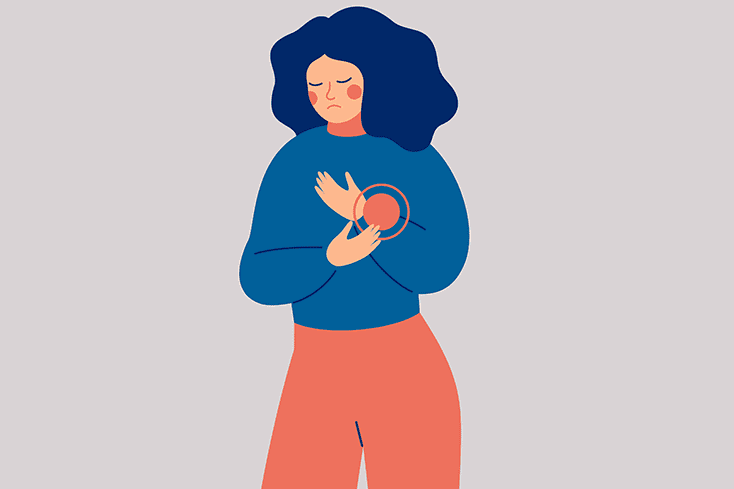
My first episodes of skin picking, or dermatillomania, began at the age of 13. I went straight for the little bumps on my arms, above the elbows. I searched and destroyed. It was a little bit like popping bubble wrap – just one bubble wasn’t enough.
The skin picking got worse over time, and I moved onto other parts of my body, including my legs. The compulsion to pick my skin, I noticed, would come and go. I'd turn to skin picking as an escape, especially when I was bored or anxious. I was most drawn to do it while sunlight was shining on my skin such that every little blemish was extremely visible. It gave me a dopamine release — a similar feeling to the one I’d get when scrolling through social media.
This response is not uncommon; research shows a link between fulfilling a skin picking urge and dopamine release. The compulsion is difficult to resist. Have you ever witnessed something and, despite not wanting to look, you just can’t look away? That’s what skin picking feels like for me. It's hard to stop once I’ve started.
Facing Shame and Stigma
As I cope with this condition, I have had to grapple with the shame and stigma surrounding mental illness. I once used to cover up the redness of my skin with makeup, but I’ve given up on that now. I only bother with makeup on my face. Constantly concealing the evidence is exhausting, and the makeup gets on my clothes. So, I leave it be.
But I’m still embarrassed. The scars may not be obvious to others, but I am self-conscious about them. I wear long sleeves and pants that are difficult to roll up, which not only hides my skin but deters me from picking (to a marginal degree).
Looking for Answers
For many years, I looked for answers on the cause of my skin picking. With some research, I learned that people with attention-deficit/hyperactivity disorder (ADHD) may develop dermatillomania in response to their “low impulse control” or “hyperactivity.” I was diagnosed with ADHD, predominantly inattentive type when I was a graduate student in 2008, and I originally attributed my skin picking to this diagnosis. But my ADHD medication did little, if anything, to reduce my skin picking symptoms.
A few years ago, a psychiatrist prescribed me an antipsychotic medication. He explained that it might address my skin picking symptoms, but I was resistant to taking the medication. I simply could not accept that I was experiencing psychosis. Like many people in psychosis, I was lacking insight into my own condition. I refused to take the medication and eventually experienced a major episode of audio, visual and somatic delusions.
It was not until I reached my mid-thirties that I was diagnosed with delusional disorder, a psychotic disorder on the schizophrenia spectrum. With this diagnosis, I was able to better understand my mental health and have me further insight into a possible cause of my skin picking habit.
Finding the Right Treatment and Coping Mechanisms
An episode of psychosis was a turning point. I was prescribed an antipsychotic medication which addressed my delusions, and I took the medication faithfully. Soon after, my skin picking habit changed. Now I follow a consistent medication regimen that keeps me on track; I no longer experience delusions. And my urge to skin pick feels under control.
I have also developed coping mechanisms to deal with my occasional urge to pick. I try to give myself a time limit; when I realize I'm doing it, I tell myself "One, two, three, STOP." This method helps to “snap me out of it,” pulling me out of the hyperfocus.
I still pick my skin sometimes, and my mental health journey will be lifelong. But I accepted the help I needed and fought to reach recovery.
Alyssa B. holds a master’s degree in Social Service Administration from the University of Chicago and works as a social worker. Alyssa has a blog, Spider Medicine: Surviving Delusional Disorder, which she uses to spread awareness of serious mental illness and to reduce stigma.

